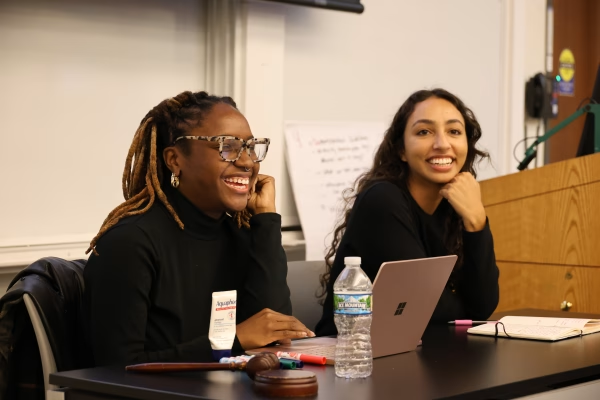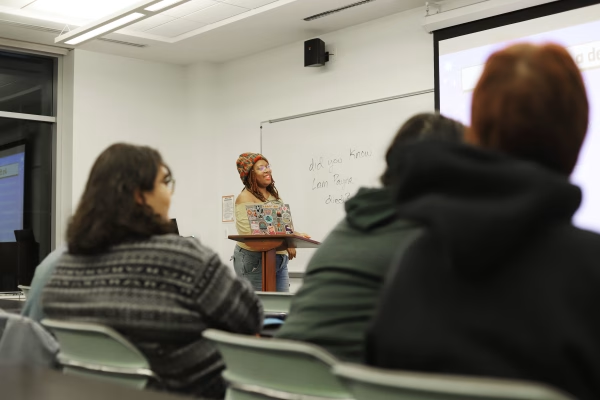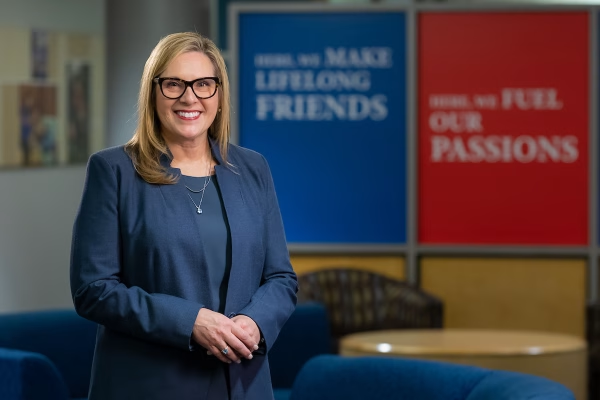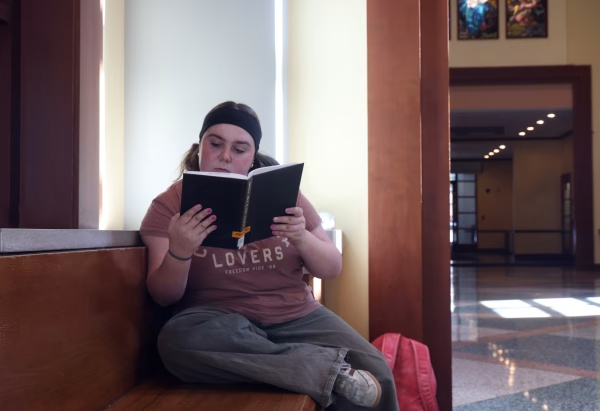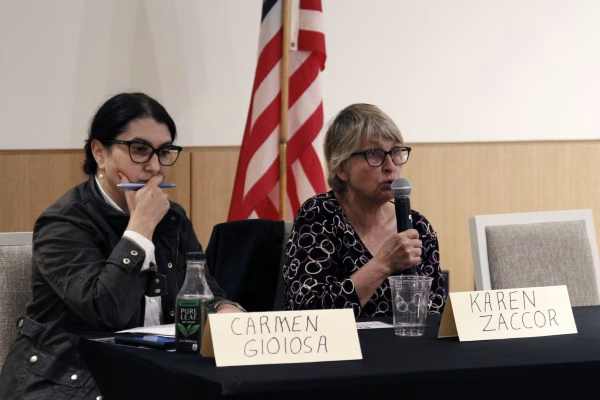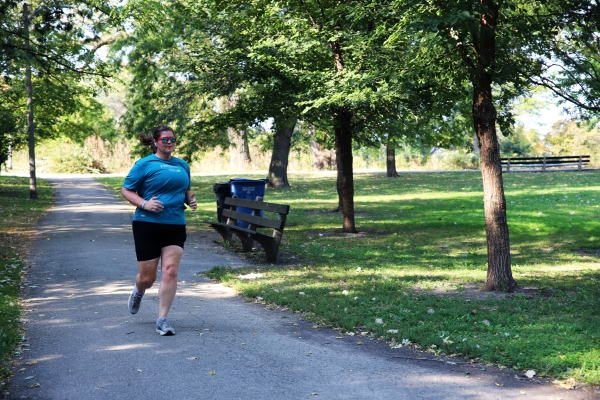DePaul’s newest Title IX coordinator inherits department distrust but is confident in new role
Kathryn Statz is now the director of gender equity — previously known as Title IX coordinator — at DePaul. The DePaulia sat down with her to discuss the Title IX office’s high turnover rate and its plans for moving forward under new leadership.
Statz has worked at DePaul since 2002 in the athletic department. She served as the associate athletic director until 2017 and was designated as a deputy coordinator in 2013. She was previously employed in the Title IX office as an investigator, having worked in the position for over a year before being promoted to director of gender equity.
“I was sort of drawn to this area,” she said. “I did some consulting and some of it was in the headhunting world, and sure enough, I got drawn back to doing consulting that related to talking to colleges, universities and students about misconduct generally.”
Statz assumed the role following the sudden departure of Ann M. Skiffington, who held the position before her. Skiffington assumed the role Sept. 9 and was confirmed to have left the university on Jan. 23.
Students have expressed a general distrust of the office, especially where accessibility and transparency are concerned, as previously reported by The DePaulia.
One way Statz said the office has moved toward improvement is by creating a Case Manager position. Hannah Retzkin, who was formerly employed by the Office of Health Promotion and Wellness, will assume that role, where she will help Statz manage the office’s caseload.
“I think that Hannah is someone that students recognize the name of, and I hope that conveys a positiveness that we would have her as part of our team with all of the skills that she brings,” Statz said.
According to university spokesperson Carol Hughes, Retzkin assumed the role on March 23.
But the office still has several obstacles ahead; it has a notoriously high turnover rate of directors. Statz said she could not speak to the high turnover rate because she’s “not [the former directors].”
“I can only speak to what the job is and what I’ve experienced in the last two and a half months or two months,” she said. “So I don’t have an opinion to give you that. I can only tell you that, you know, it’s a job that takes an interesting person and a unique set of skills and it’s the job that I’m in right now.”
Statz said despite the high turnover rate, she ultimately feels as though she is being set up for success in her role, with her experience as an investigator serving as an advantage.
“I’ve had access to a ton of training,” she said. “I had access to working with actually three different coordinators because I served as a deputy under [former coordinator] Karen Tamburro, and benefited from her expertise as a pretty amazing coordinator. And so she’s someone I still speak with. So I do think that it’s also a huge benefit to me to be in a world that I’ve never been in terms of being on the student affairs side of the house.”
Hughes, who was also present at the meeting and spoke on behalf of DePaul, jumped in to address the high turnover rate and why the past several coordinators’ departures weren’t shared with DePaul students.
“On some occasions, especially like the president or the provost — if somebody at that high level were to be leaving the university, we might announce the leaving,” Hughes said. “But typically, people are coming and going in higher ed all the time. It’s when somebody new comes on board that we announce it for various reasons. We want students, faculty and staff to know about it.”
Statz said despite the turnover, the office has continued to function per usual as staff changes were made.
“It doesn’t matter whether it’s my name or Ann’s name or whomever; it’s DePaul’s commitment to this,” Statz said. “I get what you’re saying, I get why you’re asking the question, but there’s never been a time that any input into this office, in terms of any report of a need — whether it’s sexual violence, harassment between faculty and staff, pregnancy accommodations — wasn’t coming in. So I hope you can help us convey that.”
Both Statz and Hughes asked to clarify a jump in numbers displayed in the 2018 Preventing Sexual Violence in Higher Education Act report.
The report indicates that 214 confidential or anonymous reports of sexual violence were made at DePaul in 2017. That number would indicate a 548.5% increase in reports between 2016 and 2017.
They said the number listed on the report was a data reporting error on the university’s part.
They did not know the actual number of confidential or anonymous reports made in 2017 at the time of the meeting, and said that though the state received a footnote indicating the error, no changes will be made to the report on DePaul’s website.
The DePaulia first put in a request to interview Statz on Feb. 7, but were told that she “was not ready for media interviews at this time” by university spokesperson Carol Hughes. We sat down with her in March.
When contacted by The DePaulia following her confirmed leave, Skiffington said that she appreciates the interest in this matter” but is “not ready to talk about it yet.”
Prior to Skiffington, the position was occupied by Jessica Landis, who also abruptly left the university in May 2019, after assuming the role in 2018.
Amid campus closures as a result of the COVID-19 outbreak, Statz confirmed that the office would function remotely.
“Our office is indeed operating remotely and supporting students, faculty and staff,” she said in an email. “We are utilizing all resources at our disposal to continue to process everything from academic and other accommodation requests to investigative interviews and file reviews. The steps we took proactively before any pandemic issues arose have allowed our staff to operate without pause, and we have found parties involved in all aspects of our work to be open and responsive to remote means of communication.”
Despite the frequent leadership changes within the department, Statz maintained that she felt confident in the new role and had faith that her previous experience would help her.
“I’m hoping that perhaps in some instances when students are talking, you know, maybe there’s someone that we touched, in a figurative way, that can say, ‘Actually, they did seem responsive, they did really stick with a timeline in trying to respond, that they were trauma-informed — they did seem to convey this inception sense of dignity of every person and at every juncture treated me with kindness and dignity and respect,’” Statz said.



